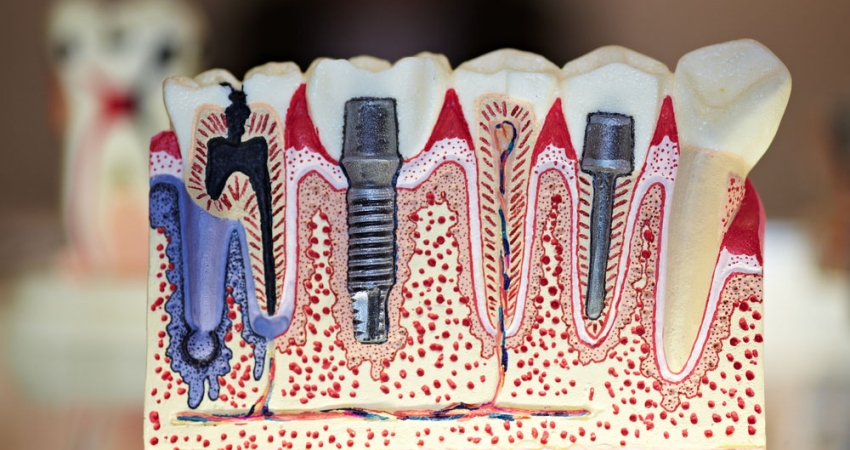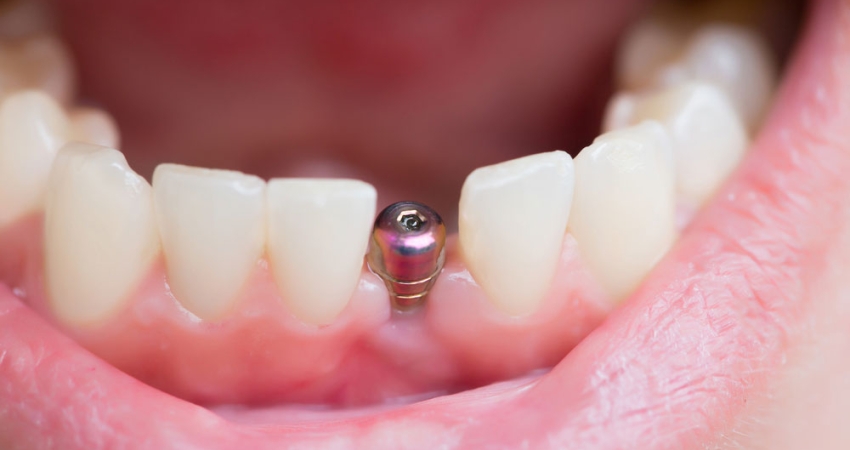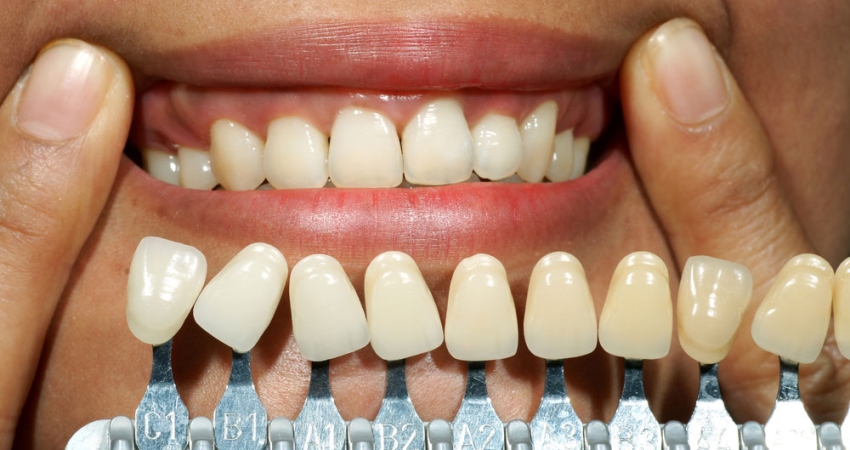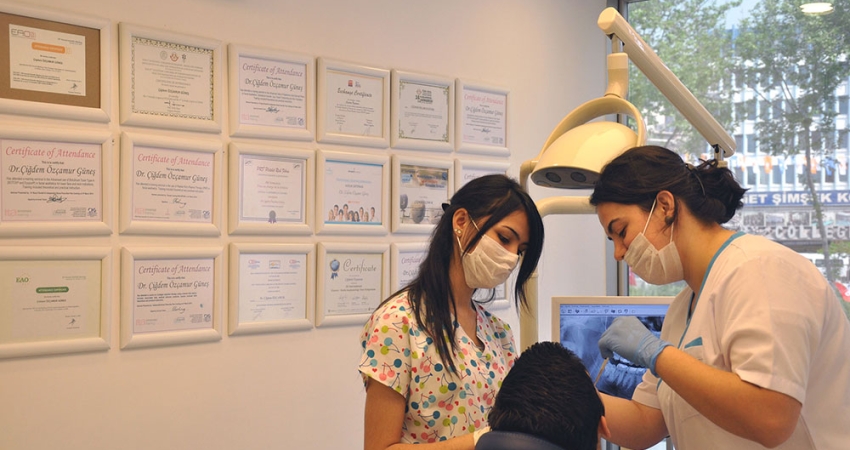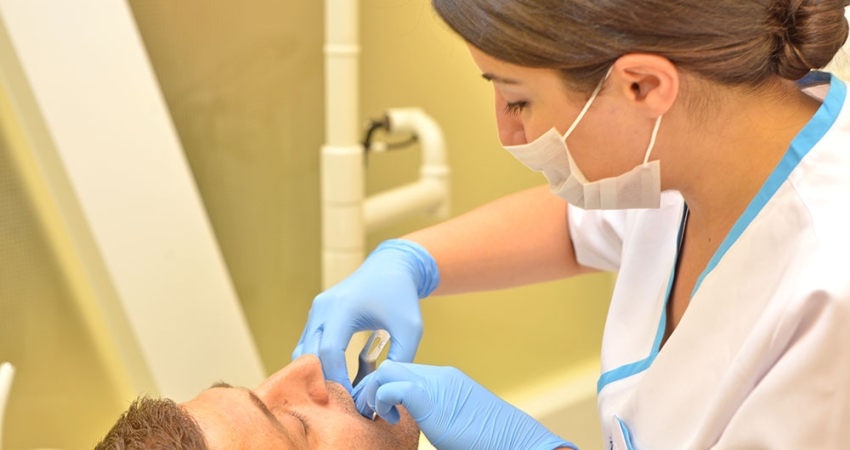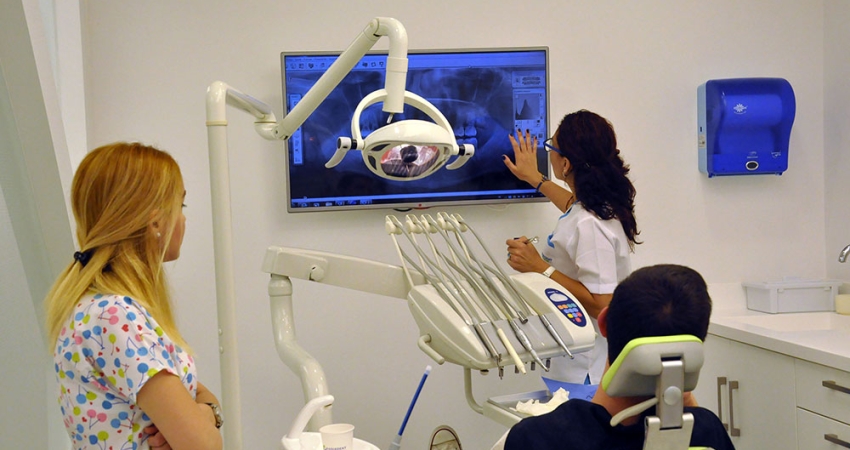444 68 41
يمكننا الاتصال بك على الأرقام التالية.
- 0544 868 68 41 Çekmeköy
0542 468 68 41 Kartal - info@radixdent.com.tr
علاج الزرع
علاج الغرس
Implant Treatment
Implants are artificial tooth roots that are placed into your jaw bone to regain functions and aesthetic appearance of missing teeth. Implants are commonly bio-compatible and extremely endurable. Appearance and utilization of implants are very comfortable; their presence in the mouth cannot be even felt.
Advantages of implant treatments: It is not necessary to sacrifice adjoining teeth for tooth restorations in patients with a single missing tooth and outcomes are more aesthetic and functional. Patients who lost some of their teeth in the upper or lower jaw have to make healthy teeth cut for a bridge restoration. If patient complains of poor chewing function or dent secondary to mobility of prosthesis, which is used for total edentation or if sense of taste is negatively influenced by upper jaw prosthesis as palate is covered, implant treatment will eliminate such problems, since prostheses that are most closely resembling function and appearance of natural teeth will be produced.
What is an implant? Who are candidates of implant treatment?
The studies on dental implants, colloquially known as tooth with screw, artificial tooth, or tooth implantation, started around ‘60s. The main reason for dental implantology being so popular relates to better cosmetic and comfortable outcomes relative to conventional dentistry methods, such as dental bridges and total and partial dentures that aim to replace missing teeth and are placed on existing teeth.
In comparison to other treatment modalities, dental implant treatment is a costly one, since it requires different surgical approaches depending on structure of mouth, materials used are imported and dentists are required to attend continuous training activities.
Dental implants, providing numerous treatment options, can be safely used in treatment of any type of tooth losses (loss of single tooth, loss of multiple teeth or complete edentulation). The most substantial step is that dentist determines possible treatment modalities with reference to patient’s general status of health, clinical assessment and imaging studies and patient’s requests before dental implant treatment is started.
Treatment modalities can simply be divided into two categories; implant-supported removable dentures or in other words, implants that can be removed and cleaned by patient and implant-supported fixed dentures or in other words, dental prosthesis that is fixed to implants with adhesives or screws and cannot be removed by the patient. These two modalities, namely removable and fixed prostheses, include various sub-group treatment options.
Knowledge and experience of the dentist, who performs implant treatment, play the most significant role in determining the optimum modality among many different treatment options.
With the advancing technology and successful outcomes of implant treatment, sufficient bone volume is no longer a prerequisite, as many different types of devices and materials are developed and novel surgical procedures are explored to offer implant treatment to every possible patient. Insufficient volume of bone can be supplemented by synthetic bone materials or bone grafts that are obtained from other creatures or any other body region of the patient. If those advanced dental implant surgeries that are supported by PRF method are performed by qualified and experienced dentists, complications and adverse effects of both surgical procedure and subsequent implant overdentures will be minimized.
Various complications that emerged after dental implants became more commonly used resulted with various false beliefs and thoughts in society. The impression is that surgical placement of implants is very painful, difficult and long-lasting procedure. In fact, placement of implant causes equal or less disturbance than tooth extraction, if volume of bone material is sufficient.
Moreover, utilizing appropriate anesthetic and surgical procedures and prescription of required medications minimize post-procedural disturbance. Rejection of implant by the jaw bone or allergic reactions against implants and metals are out of the question. Titanium, the main constructive material of implants, is a completely biocompatible element. Titanium does not lead to any allergic or foreign body reaction and is not rejected by body and living tissues.
Dental implant in our center
Successful dental implant outcomes by our expert and experienced dentists.
Esthetic and natural look.




